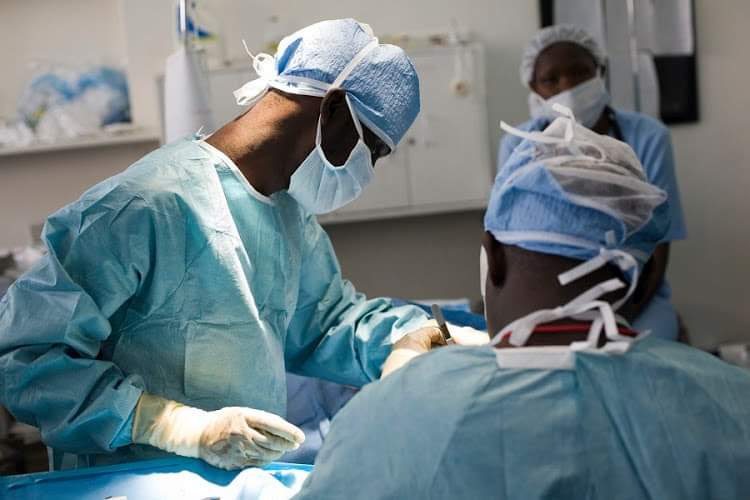Stakeholders in the health sector have called for more partnership in the fight against cardiovascular diseases.
The calls come amid increasing burden of cardiovascular diseases in Africa.
According to the World Health Organization, hypertension affects one in three adults worldwide and Africa has the highest prevalence of hypertension in any region.
WHO projects that the number of adults suffering from high blood pressure in sub-Saharan Africa to reach 216.8 million by 2030.
In 2019, more than one million deaths were due to cardiovascular diseases in sub-Saharan Africa, which constituted 5.4 per cent of all global CVD-related deaths, and 13 per cent of all deaths in Africa.
World Heart Day
During this year’s World Heart Day, AstraZeneca and partners commemorated nine years of impact in the fight against hypertension, helping to decrease the burden of cardiovascular diseases (CVDs) and non-communicable diseases (NCDs) through the Healthy Heart Africa (HHA) programme.
AstraZeneca is a global, science-led biopharmaceutical company that focuses on the discovery, development, and commercialisation of prescription medicines in Oncology, Rare Diseases and Biopharmaceuticals’, including Cardiovascular, Renal & Metabolism, and Respiratory & Immunology.
Healthy Heart Africa (HHA) is AstraZeneca’s innovative programme committed to tackling hypertension (high blood pressure) and the increasing burden of cardiovascular disease (CVDs) in Africa.
The program supports local health systems by increasing awareness of the symptoms and risks of hypertension and by offering education, screening, reduced-cost treatment (where applicable), and control.

Healthy Heart Africa Interventions
Since its inception in 2014, the programme is currently active in both East and West Africa has conducted over 38.5 million blood pressure screenings, and diagnosed over 3.1 million people.
The programme has also trained over 10,600 healthcare workers, including doctors, nurses, community health volunteers and pharmacists to provide education and awareness, screening and treatment services.
Healthy Heart Africa demonstrates the power of public-private partnerships in delivering sustainable solutions that strengthen the resilience of local health systems
Manaseer, AstraZeneca
It has also activated over 1,300 healthcare facilities to provide hypertension services.
“Healthy Heart Africa demonstrates the power of public-private partnerships in delivering sustainable solutions that strengthen the resilience of local health systems,” said Qutaiba Al Manaseer, Senior Director of Corporate Affairs for the Middle East and Africa Region at AstraZeneca.
He added: “We will continue collaborating with stakeholders to tackle the silent killer that is hypertension and to improve patient outcomes.”
He said the programme is on track to achieve its ambition of reaching 10 million people with elevated blood pressure by 2025, with 7.7 million readings recorded thus far.
The sentiments were echoed by Dr Yvette Kisaka, Programs Lead, Division of NCD Prevention and Control, Ministry of Health Kenya who noted that the efforts by the HHA program are in line with the government’s strategies aimed at fighting CVDs.
We need to strengthen health systems to achieve Universal Health Coverage, as envisioned by Sustainable Development Goal III on good health and wellbeing
Dr Yvette
“That is why, together with partners, we are developing strategies such as the National Guidelines for the Management of Cardiovascular Diseases,” she said.
She underscored Healthy Heart Africa programme’s pivotal role in the fight against cardiovascular disease in Kenya, especially in collaborating with all stakeholders to ensure a healthier future for our citizens.
“We need to strengthen health systems to achieve Universal Health Coverage, as envisioned by Sustainable Development Goal III on good health and wellbeing,” she said
HHA supports local health system resilience by addressing the barriers that prevent access to care by increasing awareness of the symptoms and risks of hypertension and educating around healthy lifestyle choices; training providers and driving care to lower levels of the healthcare system; and offering health screening, and access to treatment and disease management.
Other partners in the program include; PATH, Population Services International (PSI), Kenya Conference of Catholic Bishops (KCCB), African Christian Health Associations Platform (ACHAP), and Uganda Protestant Medical Bureau (UPMB).
